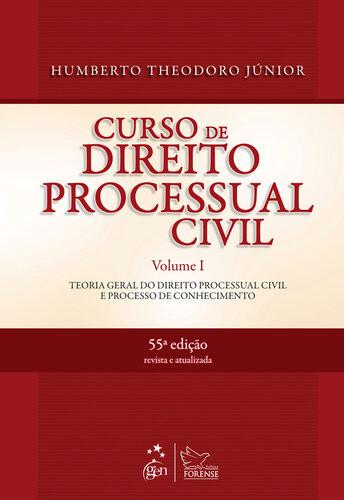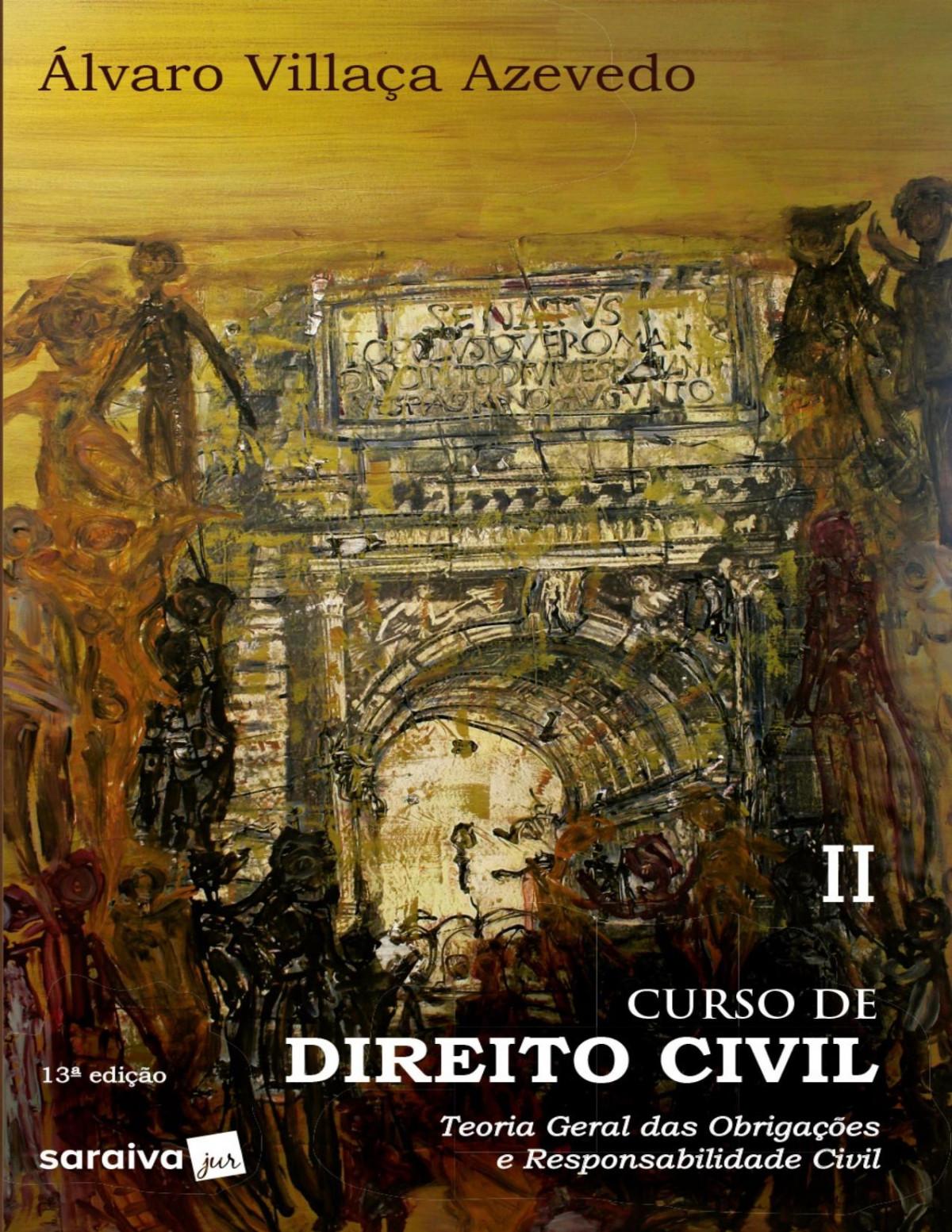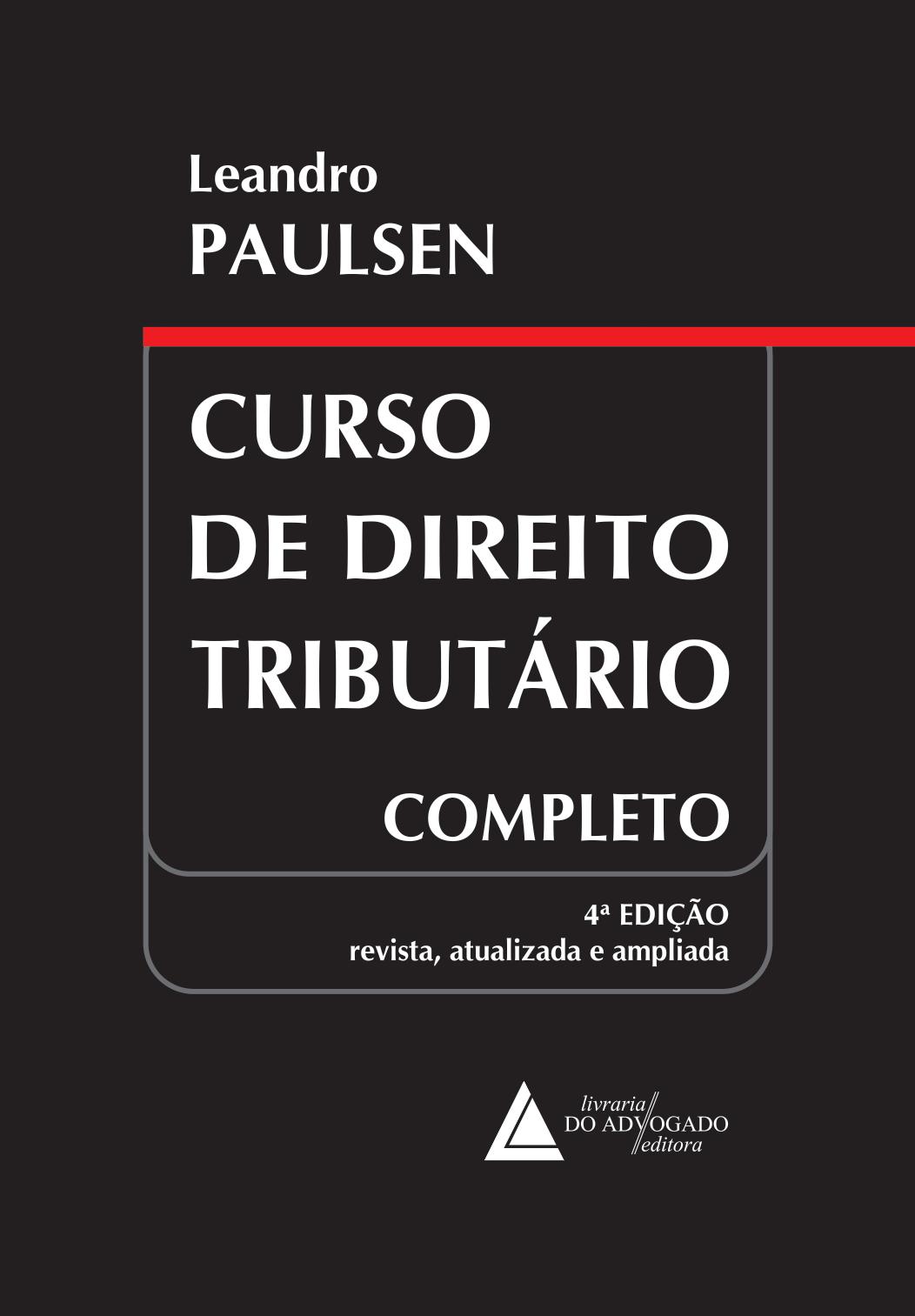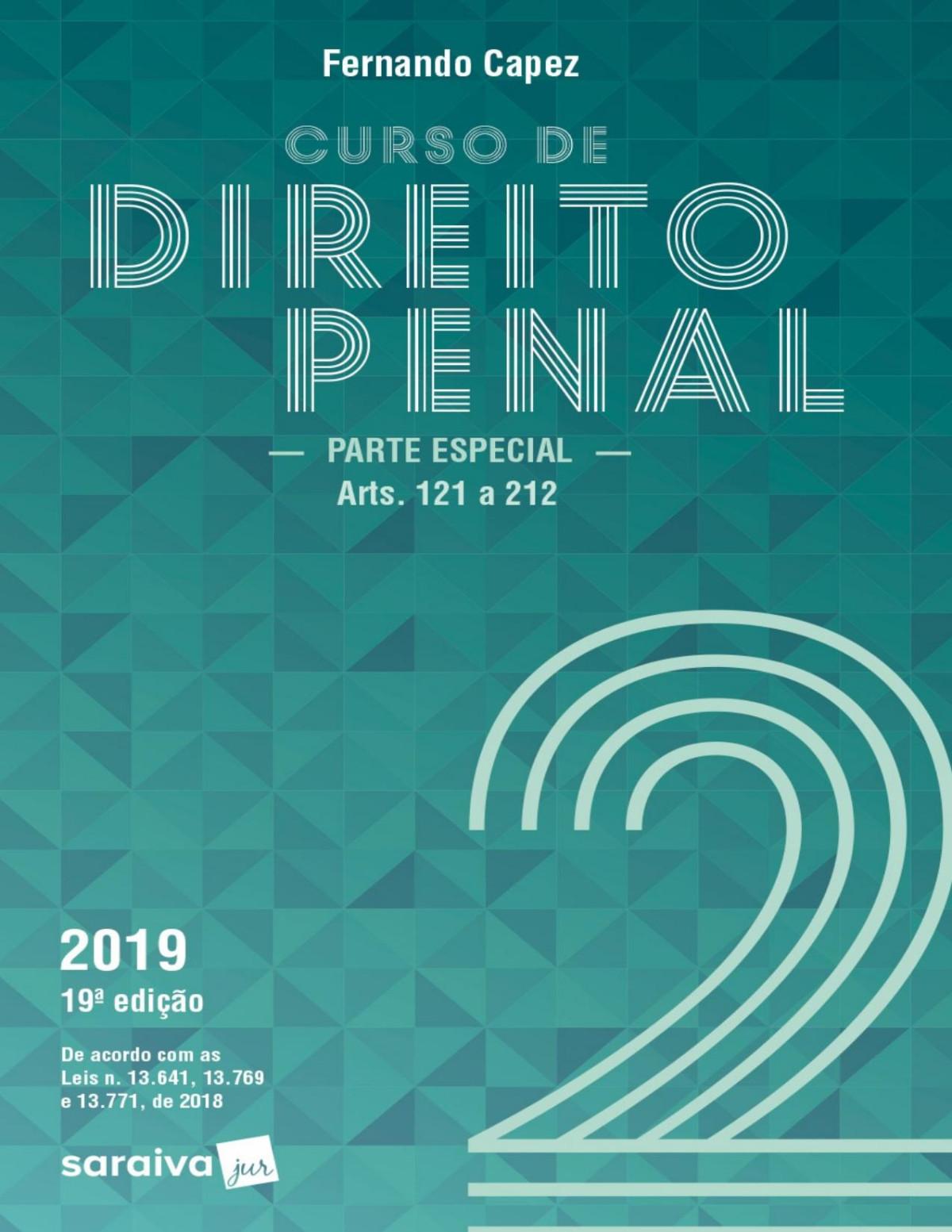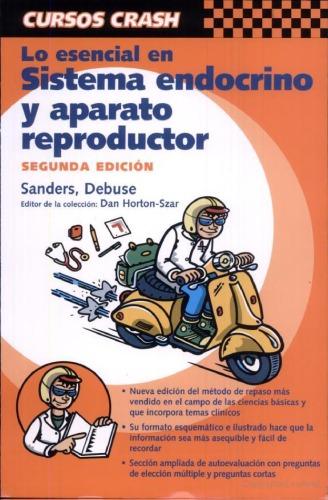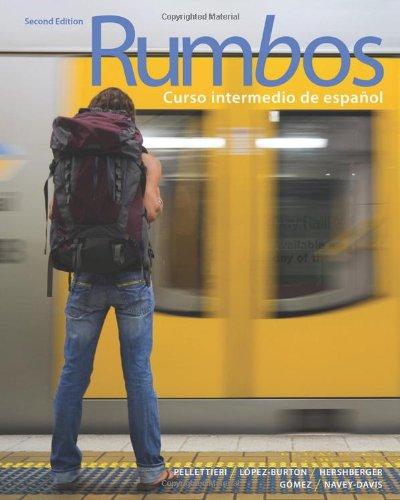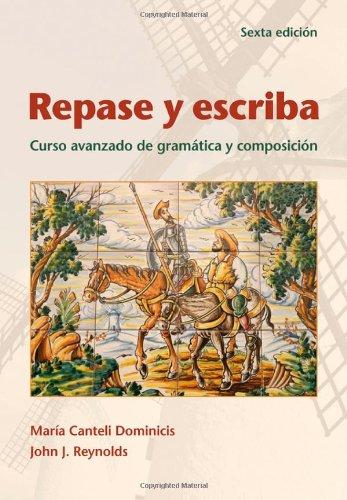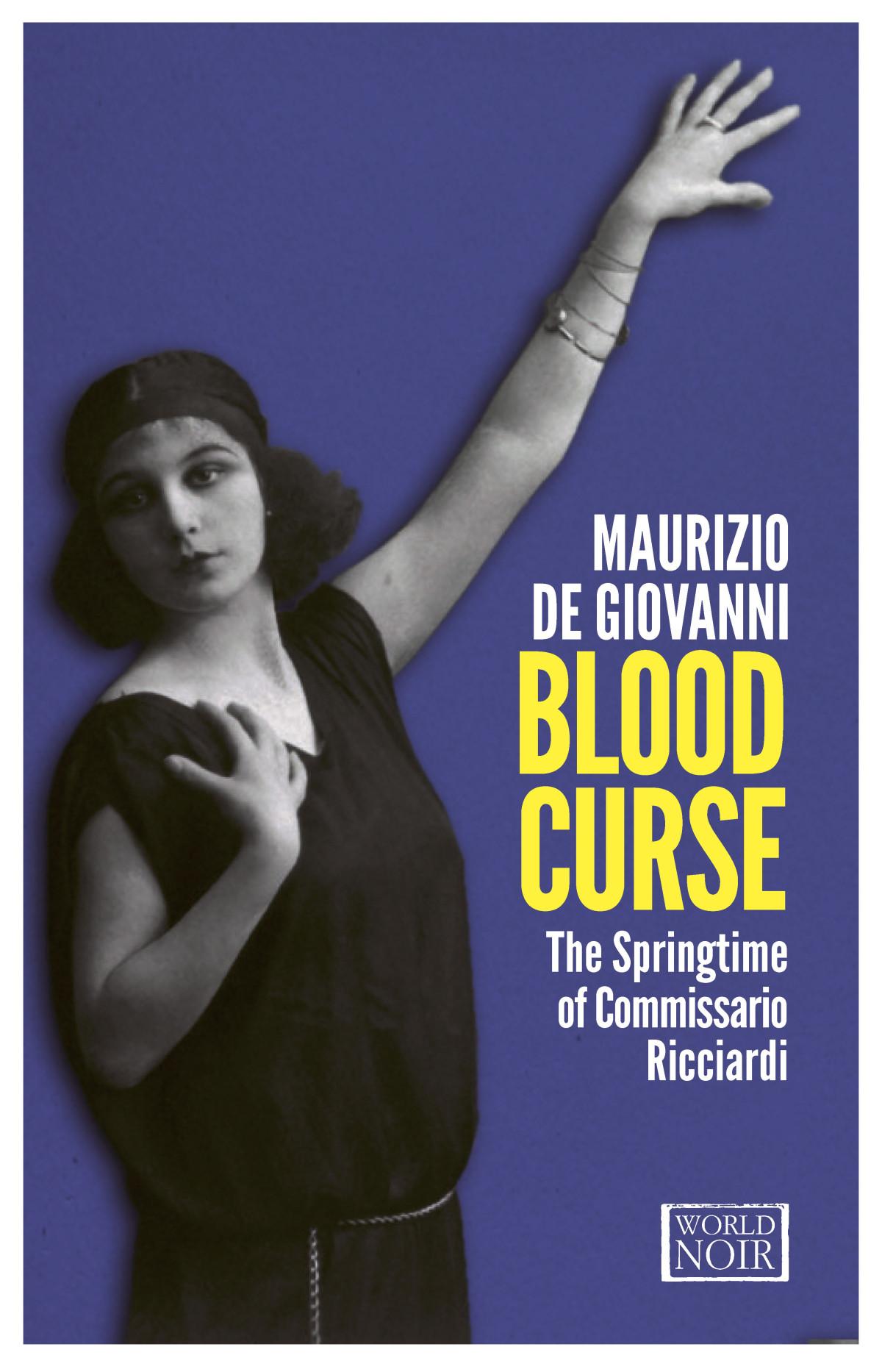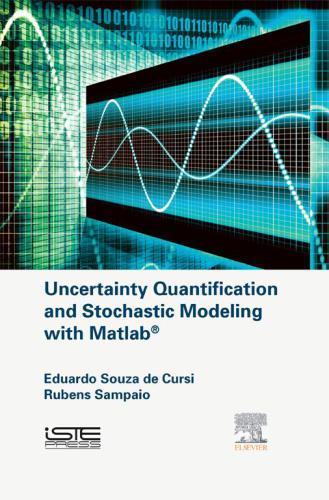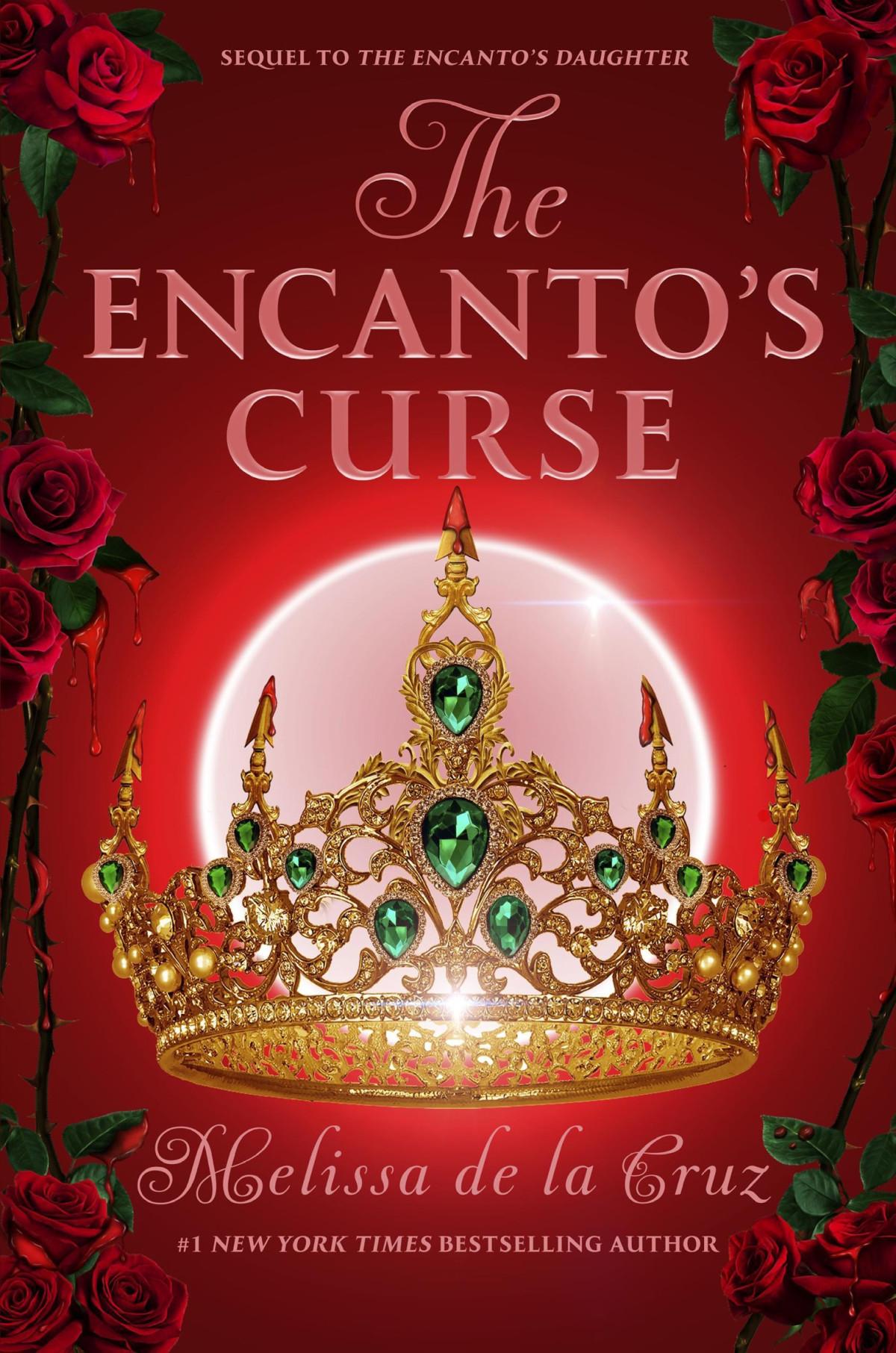Other documents randomly have different content
dátapwat 5aŋ maŋa nakíkinig naŋ
mísa ay wala ŋ márinig sa kanyà kuŋ hindìʾ aŋ salità ŋ “Mísa, mísa, mísa,” at iba pà. Papasí-pasyal sa harapàn naŋ altàr; kuŋ mínsan ay humáharap sa maŋa táo, pinagdódoop aŋ kamày, at sa lahàt naŋ pagkílos nya ŋ itò y wala ŋ patìd nya ŋ sinàsábi aŋ “Mísa, mísa, mísa,” at iba pà.
he said mass, but those who heard the mass could hear nothing from him, except only the word “Mass, mass, mass,” and so on. He would walk round in front of the altar; at times he faced the people, brought his hands together, and, while making all these movements, he would keep saying his “Mass, mass, mass,” and so on.
10Aŋ maŋa táo y nagálit at ipinagsumbòŋ sya sa arsubìspo. Aŋ sagòt naŋ arsubìspo ay páparoon sya ŋ isà ŋ liŋgò at makíkinig naŋ mísa, úpaŋ màkíta kuŋ túnay ŋàʾ aŋ sumboŋ nilà.
The people got angry and reported him to the archbishop. The answer of the archbishop was that he would come some Sunday and hear the mass to see if their accusation was really true.
Dumatìŋ doòn aŋ arsubìspo. Sa kanyà y sinábi naŋ páriʾ na sya y hindí makapagmísa, sapagkàt aŋ maŋa ulòl na táo ay 15nagààlísan sa simbáhan paguumpisà nya naŋ mísa.
The archbishop arrived. The priest told him that he was not able to perform mass, because the silly people all left the church as soon as he began mass.
“Búkas,” sinábi pa nyà, “ay màmàmasdàn ninyò aŋ kanila ŋ pagtatakbúhan sa pagbebendisyòn ko pa lámaŋ.”
“Tomorrow,” he added, “you will see how they all run away as soon as I give the blessing.”
Kinàbukásan ay liŋgò at sa pagmimísa nya ay háharap aŋ arsubìspo. Umísip sya naŋ paraàn
The next day was Sunday and at his mass the archbishop was to be present. He planned a way of saving
naŋ pagliligtàs sa kanya ŋ 20saríle.
Kanyàʾ, bágu sya nagumpisà naŋ pagmimísa ay nagpakuló sya naŋ laŋìs. Hábaŋ sya y nagbìbíhis aŋ
maŋa táo namàn at aŋ arsubìspo ay nàùupú na sa simbáhan. Aŋ arsubìspo ay malápit sa altàr at hábaŋ sya y nagbìbíhis aŋ laŋìs namàn ay kasalukúya ŋ kumúkulòʾ. Naŋ makapagbíhis na syà ay ibinúhus 25nya sa lalagyàn naŋ túbig na bendíta aŋ kumúkulu ŋ laŋìs. Aŋ ugálì nya ay magbendisyòn múna bágu magmísa, kanyàʾ pagpások nya sa simbáhan ay sya nyà ŋ iniwisìk sa maŋa táo aŋ kumúkulu ŋ laŋìs sa lugàr naŋ àgwa-bendíta. Aŋ maŋa táo ŋ dinapúan naŋ maiínit na patàk naŋ laŋìs ay nagsipagtindìg at úbuslàkása 30ŋ nagsipagtakbúhan papalabàs sa simbáhan. Naŋ màkíta itò naŋ arsubìspo ay hindí nya ipinatulòy aŋ pagmimísa sa áraw na iyòn, sapagkàt wala ŋ nátira sa simbáhan ní isa màn sa maŋa táo.
himself. Accordingly, before beginning the mass, he caused some oil to boil. While he was putting on his vestments the people and the archbishop were seated in the church. The archbishop was near the altar, and, while the priest was putting on his vestments, the oil was boiling. When he had put on his vestments, he poured the boiling oil into the vessel for holy water. It was his custom to give the blessing before saying mass, so, when he entered the church, he sprinkled the boiling oil on the people instead of holy-water. The people, struck by the drops of hot oil, all jumped up and ran with all their might out of the church. When the archbishop saw this, he did not have the mass gone on with on that day, for there was not a single one of the people left in the church.
Sinábi naŋ arsubìspo sa párìʾ na sya y hindí mààalìs sa báya 35ŋ iyòn at hindí na nyà pàpansinìn aŋ anu mà ŋ ipagsumbòŋ naŋ maŋa táo.
The archbishop said to the priest that he would not have to leave the town and that hereafter he would not heed any accusation that the people made.
28. Aŋ pàkumpisálan.
28. The confessional.
Si Párì Mundò ay sya ŋ nàdistínu ŋ ilà ŋ taòn sa báya-ŋ-Marikína. Sya y isa ŋ táo ŋ maibigìn sa pagliliwalìw. Sa pagtupàd 40sa kanya ŋ maŋa tuŋkúlin sya y hindí nagkùkúlaŋ káylan màn. Araw-áraw sya y nagmìmísa at kuŋ liŋgò ay makálawa sya ŋ magmísa. Gayon dìn sya y nagbíbinyàg naŋ maŋa bátaʾ, nagbèbendisyòn naŋ patày, nagháhatid naŋ biyátiko, nagpàpakumpisàl, at nagpakinábaŋ.
Aŋ lahàt naŋ kanyà ŋ tuŋkúlin ay 5sinúsunod nyà ŋ mabúte, dátapuwat aŋ pagpapakumpisàl ay nilalúan nya naŋ kauntìʾ. Sa ganà ŋ kanyà sigúro ŋ itò y mabúte úpaŋ pauntiìn aŋ maŋa kasalánan naŋ kanya ŋ kinúkumpisàl, dátapuwat sa ibà sa kanya ŋ maŋa kinúkumpisal itò y may nagìŋ masamà ŋ dúlo.
Father Mundo was the priest assigned for some years to the town of Mariquina. He was a man who liked amusements. He was never deficient in the fulfilment of his duties. Every day he said mass, and on Sunday he said mass twice. Also, he christened children, said blessings over the dead, carried the sacrament, heard confession, and gave holy communion. He performed all his duties well, but the confessing he overdid a little. From his point of view this was perhaps useful in lessening the sins of those whom he confessed, but for some of the latter it had its bad side.
10Mínsan máy-ro ŋ isà ŋ babái ŋ dalága na mapagsimbà at mapagkumpisàl. Naŋ dumatìŋ aŋ dalága ŋ itò sa dalawa ŋ pù ŋ taòn aŋ gúlaŋ ay iníwan na nyà aŋ kabànála ŋ pagkukumpisàl, gayon dìn bihíra ŋ magsimbà. Naŋ mínsan usisáin aŋ babáye ŋ itò ay nagsábi naŋ ganitò:
Once there was a young woman who was fond of going to church and to confession. When this young woman reached the age of twenty years, she abandoned the pious duty of going to confession, and also went to church but rarely. Once when this woman
15“Noo ŋ úna aŋ boò ŋ akálà ko si
Párì Mundò ay isa ŋ sànto, dátapwat
ŋayò y nàpagkìkilála naŋ marámi na sya y isa ŋ buwísit na táo. Kuŋ bahàʾ at aŋ maŋa táo y nagsìsipamaŋkàʾ sa bahàʾ, sya y sa baŋkàʾ naŋ maŋa babáe nakíkisakày at hindí sa maŋa laláki. Kuŋ umága pagkamísa nya ay màkìkíta na sya ŋ nakataluŋkò 20sa kanya ŋ pátyo na aŋ ábito y nagùgúmun sa lúpaʾ at sya y humàhágod naŋ manòk kaharàp naŋ ibà ŋ sabuŋéro.
was questioned, she spoke as follows:
“At first I really thought that Father Mundo was a saint, but now the people realize that he is a horrid man. At flood-time, when the people are all canoeing on the flood, he rides along in the women’s canoe, and not with the men. In the morning, after saying mass, he is seen squatting in his courtyard with his vestments trailing on the ground, petting fighting-cocks, in company with the other cock-fighters.
“Noo ŋ úna akò y madalàs magkumpisàl sa kanyà, dátapwat dumatìŋ aŋ isa ŋ áraw na panày na kaululàn lámaŋ aŋ ipagtatanòŋ nya sa ákin sa kumpìsálan. Súkat ba ŋ itinanòŋ 25nya sa ákin kuŋ ilàn aŋ manlilígaw sa ákin, kuŋ síno aŋ áki ŋ inìíbig, at kuŋ saàn akò makìkipagtagpòʾ? Sa loob-loòb ku lámaŋ ay nàpakawala-ŋ-hyàʾ aŋ pári ŋ itò. Kanyàʾ iníwan ku sya agàd sa kumpìsálan at mulá noon ay hindí na akò naŋumpisàl.”
“At first I often confessed to him, but there came a day when the things he asked me in the confessional were nothing but foolishness. Was it right for him to ask me how many suitors I had, whom I liked, and where I met them? What I thought was that this priest was extremely impudent. So I left him at once in the confessional, and since that time I have not been going to confession.”
29. Si Hwà ŋ bíbas.
29. Juan the joker.
Si Hwàn ay isa táo ŋ mapaggawá naŋ kaululàn, dátapuwat itò y hindí nya sinásadyàʾ úpaŋ magpagálit naŋ kápwa táo, kuŋ hindí yon ay talagà ŋ sya nyà ŋ ugáliʾ na átas sa kanya naŋ kanya ŋ pagiísip.
Juan was a man given to doing nonsensical things, but he did not do them intentionally to anger his fellow-men; it was merely his natural habit, prompted by his character.
35Mínsan sya y naparòn sa fiyèsta
naŋ isa ŋ báyan. May pasàn sya ŋ
tatlò ŋ biìk, úpaŋ ipagbilè sa báyan.
Naŋ sya y dumatiŋ nà, nàkíta nya sa pátyo naŋ simbáhan aŋ marámi ŋ táo
ŋ nalìlípon at nakíkinìg naŋ biníbigkas na talumpátiʾ naŋ kápitan sa báyan. Masikìp aŋ pagkakátayo
naŋ maŋa táo, dátapwat 40sya y nálapit dìn sa paanàn naŋ entabládo na kinàtàtayuàn naŋ nagtàtalumpátiʾ. Hábaŋ nakìkipagsiksíkan syà, aŋ tatlò ŋ biìk ay wala ŋ lubày naŋ pagyàk. Naŋ syà y makaratiŋ nà sa harapàn naŋ kápitan, tinúkup nya aŋ maŋa bibìg, úpaŋ silà y patahanìn, dátapwat walá sya ŋ magawàʾ. Náino naŋ kápitan aŋ maŋa ìyákan naŋ biìk at tiniŋnan nyà kuŋ síno aŋ máy dala doòn 5naŋ maŋa biìk.
Once he went to the festival of a certain town. He was carrying three young pigs to sell in the town. When he got there, he saw many people gathered in the courtyard of the church and listening to a speech which the mayor of the town was delivering. The people stood in a dense crowd, but he succeeded in getting close to the foot of the platform on which the orator was standing. While he took part in the crowding, the three pigs kept squealing. When he had arrived in front of the mayor, he held his hand over their mouths to make them keep quiet, but he did not succeed. The mayor took notice of the squealing of the pigs and looked round to see who had brought the pigs there.
Naŋ màkíta nya si Hwàn ay sinábi nya aŋ ganítò: “Huwán! Anò aŋ gustu mò ŋ sabíhin sa pagpapaiyàk mo díto naŋ iyo ŋ maŋa biìk? Lumáyas ka ŋayon dìn, at hwag kà ŋ makàtuntoŋ-tuntòŋ káylan màn sa lúpa-ŋ-Bùstos!”
When he saw Juan he addressed him as follows: “Juan! What do you mean by making your pigs squeal here? Get out of here at once and never again dare to set foot on the ground of Bustos!”
10Si Hwàn ay umalìs at umwèʾ sa kanya ŋ báyan sa San-Ildepònso. Nakaraàn aŋ isa ŋ taòn at dumatìŋ na mulìʾ aŋ fyèsta sa báyan naŋ Bùstos. Iníbig ni Hwàn na pumaroòn, dátapuwat nàalaála nya na tinaŋáan sya naŋ kápitan sa báya ŋ iyòn na, pag sya y nàkíta ŋ mulìʾ sa lúpa-ŋBùstos, ay sya y 15ipabíbilaŋgòʾ at pahìhirápan. Umísip si Hwàn naŋ paraàn úpaŋ makaparòn.
Juan departed and went home to his town of San Ildefonso. A year passed, and the festival in the town of Bustos came round again. Juan wanted to go there, but he remembered that the mayor of that town had threatened him that, if he were seen again on the ground of Bustos, he would have him imprisoned and tortured. Juan thought of a way of going there none the less.
Naŋ dumatìŋ aŋ fiyèsta ay máy-roo ŋ isà ŋ mísa ŋ malakì na dinaluhàn naŋ líbo-líbo ŋ táo. Si Hwàn ay isà sa maŋa táo ŋ itò at syà aŋ nàpàpansìn naŋ marámi ŋ táo, dahilàn sa anyò 20naŋ pagkálagay nyà doòn sa loòb naŋ simbáhan. Dí nalaúnan at isà sa maŋa táo ŋ nagmámasid sa kanyà ay nagsumbùŋ sa kápitan at sinábi na si Hwàn ay násàsa loòb naŋ simbáhan at nakasakày sa isa ŋ karéta na
When the festival arrived, there was a high mass, which was attended by thousands of people. Juan was one of these people, and he it was whom all the people were watching, owing to the manner of his appearance there in the church. It was not long before one of the people who were watching him complained to the mayor, saying that Juan was in the church mounted on a wagon drawn by carabao, and
hinìhíla naŋ kalabàw, at aŋ lahàt, karéta, kalabàw, at si Hwàn ay násàsa loòb naŋ simbáhan. Si 25Hwàn ay hindí nanànáog sa karéta ŋ kanya ŋ tinùtuntuŋàn.
that the whole thing, wagon, carabao, and Juan, was inside the church. Juan had not got down from the wagon on which he was standing.
Pumarùn aŋ kápitan sa simbáhan
úpaŋ hulíhin si Hwàn. Naŋ málapit syà díto ay sinábi nyà: “Huwán! Sumunòd ka sa ákin at ibíbilaŋgú kità. Hindí ba sinábi ko nà sa iyò t hwàg kà ŋ tútuntoŋ naŋ lúpa-ŋBùstos?”
The mayor went to the church to arrest Juan. When he got there he said: “Juan! Follow me, I am going to imprison you. Didn’t I tell you not to set foot on the ground of Bustos?”
30Isinagòt namàn ni Hwàn: “Ginoò ŋ
Kápitan! Sinábi ŋàʾ po ninyò sa ákin iyàn. Kanyàʾ akò y hindí makaalìs sa áki ŋ karéta. Nàkìkíta pú ba ninyò itò
ŋ lúpa ŋ lúlan naŋ áki ŋ karéta at sya kò ŋ tinùtuntuŋàn? Ito pòʾ ay hindè lúpa-ŋ-Bùstos kuŋ hindí lúpa-ŋ-SanIldepònso. Doòn ko pòʾ sa áki ŋ báyan kinúha 35aŋ lúpa ŋ itò.”
But Juan answered: “Mr. Mayor! You certainly did tell me that. That is why I cannot get out of my wagon. Do you see this earth, sir, with which my wagon is loaded and on which I am standing? This is not the ground of Bustos, sir, but earth of San Ildefonso. I got this earth in my town.”
Pagkàsábi ni Hwàn nitò ay hindí nàpigílan naŋ kápitan aŋ pagtáwa, at sinábi na lámaŋ nya sa kanya ŋ saríli na syà y wala ŋ magágawa kay Hwàn, sapagkàt itò y nása katwíran.
When Juan had said this, the mayor could not restrain his laughter and only said to himself that he could do nothing to Juan, for the latter was in the right.
30. Tatlò ŋ magkakaybíga ŋ magnanákaw.
30. The three thieves.
40Si Hwàn, si Andrès, at si Dyégo ay tatlò ŋ magagalìŋ na magnanákaw. Silà y balíta ŋ balítaʾ, at marámi ŋ táo aŋ nagsìsihúle sa kanilà, dátapuwat sa galìŋ nilà naŋ paŋiŋílag at pagnanákaw ay hindí sila màhúle. Aŋ tatlò ŋ itù y nagtìpána ŋ mínsan na magtatagpòʾ sila sa isa ŋ lugàr na tahímik at líhim 5úpaŋ pagusápan nilà aŋ kanilà ŋ pamumúhay at maŋa mabubúti ŋ bágo ŋ paraàn naŋ pagnanákaw. Silà ŋ tatlò ay nabùbúhay sa pagnanákaw lámaŋ. Ní isa màn sa kanilà ay walà ŋ paghahánap na mabúte. Mulá pa sa pagkabátàʾ ay ganito nà aŋ kanila ŋ pamumúhay, kanyàʾ silà y nagìŋ matalíno at lubhà ŋ makínis 10sa gawa ŋ itò.
Juan, Andrés, and Diego were three expert thieves. They were very famous, and many people were trying to catch them, but their cleverness at dodging and stealing kept them from being caught. The three once made an appointment to meet at a certain quiet and secret place to discuss their means of livelihood and new good methods of thievery. Not one of them had an honest trade. This had been their mode of life from childhood on, so they had become skilful and very clever at this activity.
Naŋ dumatìŋ aŋ áraw naŋ kanilà ŋ tìpánan, madali ŋ áraw pa lámaŋ ay nàròroòn na silà. Malakì ŋ pamamalítaʾ naŋ báwat isà at hindí magkàmáyaw aŋ kanila ŋ pagbabàlitaàn.
When the day of their meeting came, they were there already at dawn. Each one of them had much to tell, and, as they were all talking at once, their stories were indistinguishable.
Itinanòŋ ni Hwàn kay Dyégo: “Gánu ka na bà kakínis 15ŋayòn sa áti ŋ trabáho?”
Juan asked of Diego: “How skilled are you now at your work?”
“Sa damdam kò,” aŋ sagòt ni Dyégo, “ay akò aŋ pinakamakínis sa áti ŋ tatlò, sapagkàt akò y nakapagnànákaw naŋ maŋa itlòg na hinàhalimhimàn naŋ manòk na hindí nàlàláman nitò. At hindí itu lámaŋ,” idinugtuŋ nyà, “aŋ maŋa háyop màn na mababagsìk 20ay nànànakáwan ku naŋ kanila ŋ inakày naŋ walá sila ŋ málay.”
“In my opinion,” answered Diego, “I am the most skilful of us three, for I am able to steal the eggs a hen is brooding on without its knowing it. And not only this,” he continued, “I am able to rob wild animals of their young without their noticing it.”
“Ganyàn ba lámaŋ aŋ kínis mo?” isinabàd pagdáka ni Andrès, “Akò ay nakapagnànákaw sa háyop at gayon dìn sa táo. Aŋ maŋa aláhas naŋ táo na íbig ko ŋ nakáwin ay ninànákaw ko, 25káhit na natùtúlog o naglálakad aŋ may áreʾ. Mínsan ay ninákaw ko aŋ isa ŋ siŋsìŋ na hinìhigàn naŋ may áriʾ úpaŋ hwag mànákaw, dátapwat itò y nànákaw ko naŋ walá sya ŋ málay.”
“Is that all your skill?” Andrés quickly interrupted, “I am able to rob animals and men too. I have stolen all of people’s jewelry that I wanted to steal, whether the owner was asleep or up and about. Once I stole a ring that the owner was sleeping on to keep it from being stolen,—but I stole it without his noticing.”
“Ganyàn ba lámaŋ aŋ kínis ninyò?” itinanùŋ ni Hwàn, “Walá sa kalahátì naŋ kínis ko sa pagnanákaw aŋ inyù ŋ maŋa 30nagágawàʾ. Akò y nakapagnànákaw naŋ táo mìsmo at
“Is that all the skill you two have?” asked Juan. “The things you do don’t come halfway up to my skill at stealing. I can steal people themselves, and not only their property.”
hindí naŋ kanila lámaŋ na maŋa pagaáreʾ.”
Nàpagúlat aŋ dalawà nya ŋ kaúsap, sapagkàt hindí nila inakála ŋ aŋ isa ŋ táo ŋ buhày ay maàári ŋ mànákaw naŋ hindí nito nàlàláman, at úpaŋ subúkan nilà aŋ galìŋ ni Hwàn ay nakipagpustáhan 35silà ŋ dalawà kay Hwàn. Sinábi nilà ŋ nakáwin nya aŋ párìʾ sa báyan at ihatid nyà sa lugàr na kanila ŋ kinàdòroonàn ŋayòn.
Kuŋ itù y magawá nya, bàbayáran sya ni Andrès at ni Dyégo naŋ limà ŋ daà ŋ píso. Dátapuwat kuŋ hindí nya magawàʾ, bàbayáran nya si Andrès at si Dyégo naŋ isa ŋ daà ŋ 40píso.
Umáyon si Hwàn sa pustáha ŋ itò at silà y naghiwá-hiwalày.
The two he was talking to were surprised, for they did not think that a live man could be stolen without his knowing it, and, to test Juan’s ability, the two made a bet with Juan. They told him to steal the priest of the town and to bring him to the place where they now were. If he succeeded in doing this, Andrés and Diego would pay him five hundred pesos. But if he could not do it, he was to pay Andrés and Diego one hundred pesos. Juan agreed to this bet, and they parted.
Si Hwàn ay napatúŋu sa báyan at pinakibalitáan nya kuŋ saàn nàtìtirà aŋ párèʾ. Naŋ màláman nya itò ay nagisìp sya naŋ paraà ŋ gágawin nyà na pagnákaw sa párèʾ. Sya y pumásuk na alílaʾ sa pári ŋ itò. Sa kanya ŋ pagkàpaalíla ŋ itò ay nàkilála nya aŋ maŋa ugáli naŋ páreʾ. Isà sa kanya ŋ ugáliʾ na hindí nabàbáliʾ káylan màn ay aŋ pagdadasàl naŋ rosáriyo sa harapàn 5naŋ isa ŋ poòn. Aŋ poò ŋ itò ay nayàyárì naŋ káhoy, at itò y si Saŋ-
Juan went to the town and found out by inquiry where the priest lived. When he had found this out, he figured out the plan he would pursue in stealing the priest. He entered the priest’s household as a servant. During his stay as a servant he became acquainted with the habits of the priest. One of his habits, from which he never deviated, was praying a rosary before the image of a saint. The image was made of wood, and it represented Saint John. The size of this image was equal to
Hwàn. Aŋ lakì naŋ poò ŋ itò ay kasiŋpantày naŋ isa ŋ táo.
Aŋ ginawá ni Hwàn ay nagpagawá sya sa isa ŋ mandurúkit naŋ isa ŋ poò ŋ gáya rin nitò, dátapuwat hukày at wala ŋ lamàn 10aŋ loòb. Aŋ bútas na itò sa loòb naŋ katawàn naŋ poò ŋ itò ay maàári ŋ sootàn naŋ isa ŋ táo. Naŋ mayárì na aŋ poò ŋ pagawá ni Hwàn, ay pinalitan nyà aŋ poò ŋ si SaŋHwàn na túnay naárì naŋ párèʾ.
that of a man. Juan had a carver make an image just like this one, but with an opening, and hollow inside. This opening inside the body of the image of the saint was such that a man could enter it. When the image which Juan had had made was ready, he replaced with it the image of Saint John which belonged to the priest.
Isa ŋ hápun bágu dumatìŋ aŋ orasyòn ay kumúha sya naŋ 15isa ŋ sáko naŋ bigàs at napaloòb sya sa loòb naŋ sànto ŋ ipinagawá nya. Pagkahápon naŋ párìʾ itò y pumaroòn sa kwàrto ŋ kanya ŋ pinagdàdasalàn úpaŋ magrosáryo. Naŋ magkákalahatí na aŋ kanya ŋ pagdadasàl at kátaon namà ŋ naŋàŋáwit na si Hwàn sa pagkátayòʾ, ay nagsalità ito: “Ihintú mu nà, Párì 20Lúkas, aŋ iyo ŋ pagdadasàl. Ako y pinàparíto sa iyò úpaŋ ihatìd kità sa láŋit.”
One afternoon before prayers he took a rice-sack and went into the inside of the saint he had had made. When the priest had eaten supper he went into the room in which he prayed, to say a rosary. When he was halfway through his prayers, and just about as Juan was getting tired of standing up, the latter spoke: “Cease your praying, Father Lucas. I have been sent here to conduct you to Heaven.”
Naŋ úna ay siniglàn naŋ tákot aŋ páreʾ, dátapuwat inakálà nya ŋ aŋ kanya ŋ poòn ay nagmìmilágro at totoo ŋà ŋ sinúsundú sya úpaŋ ihatìd sa kalaŋitàn.
At first the priest was filled with fear, but then he thought that his saint was doing a miracle and was really calling for him in order to take him to Heaven. As he did not say anything, Juan again spoke as follows: “Many are the works of
25Sa kanyà ŋ hindí pagkibòʾ ay
nagsalità ŋ mulí si Hwàn naŋ ganitò: “Marámi nà aŋ kabànála ŋ iyù ŋ ginawàʾ. Matagàl ka naŋ namùmúhay naŋ mabábaʾ, at dáhil díto y nàtàtaàn sa iyò aŋ lahàt naŋ kaginhawáhan sa láŋit. Sumáma ka sa ákin at iháhatid kità.”
piety which you have done. You have been patient in living a lowly life, therefore all the joys of Heaven have been reserved for you. Come with me, and I shall conduct you.”
30Isinagòt naŋ páreʾ: “Papáno aŋ gàgawin kò ŋ pagsáma sa iyò? Akù y matandá na at hindí ako makalàlákad mulà díto sa lúpaʾ haŋgàŋ sa láŋit.”
The priest answered: “How shall I manage to come with you? I am old and cannot walk from here on earth as far as Heaven.”
Isinagòt namàn ni Hwàn: “Yòn ay hwag mù ŋ alalahánin. Máy-ron ako ŋ isa ŋ sáko. Sumilìd ka díto at pàpasanin kità sa 35pagpuntà sa láŋit.”
At pagkàsábi nya nitò y iniladlad nyà aŋ sáko naŋ bigàs. Pagkásilid naŋ páreʾ ay tinalía ŋ mahigpìt ni Hwàn aŋ sáko. Lumabàs sya sa loòb naŋ poòn at pinasan nyà si Párì Lúkas patúŋo sa báhay na kanya ŋ pinagtipanàn sa dalawa ŋ kaybígan. 40Tiwalà ŋ tiwalá si Párì Lúkas na sya y papuntà sa láŋit, kanyàʾ walá sya ŋ kibòʾ sa loòb naŋ sáko.
Juan answered: “Never you mind that, I have a bag here. Get into it and I will carry you on my way to Heaven.”
When he had said this, he spread out the rice-sack. When the priest had got into it, Juan tied the bag tightly. He got out from inside the image and carried Father Lucas on his shoulder toward the house where he had his appointment with his two friends.
Father Lucas really believed that he was going to Heaven, and so he staid still in the sack.
Dátapwat, naŋ nagbàbátis na si Hwàn sa isa ŋ mabábaw na ílog, ay inakálà nya ŋ sya y nàlòlóko lámaŋ at hindí sa láŋit aŋ punta nilà.
However, when Juan was wading through a shallow river, it occurred to him that he was being fooled and that they were not going to Heaven at all.
Kanyà itinanùŋ nya kay Hwàn: “Anu ŋ ílog itò, at bákit táyo dápat tumawìd naŋ ílog sa pagpuntà sa láŋit?”
Therefore he asked Juan: “What river is this, and why must we cross a river on the way to Heaven?”
5Isinagòt ni Hwàn: “Sssst! Hwag kà ŋ maíŋay! Itò y ílog naŋ Hòrdan.”
Juan answered: “Shhh! Don’t make any noise! This is the river Jordan.”
Aŋ párì ay nagtahàn naŋ pagsasalitàʾ. Ipinatúloy ni Hwàn aŋ paglákad.
Naŋ sya y pumápanhik nà sa báhay na kanila ŋ tagpúan, 10nàpagúlat na mulìʾ aŋ páreʾ, at tumanùŋ sya ŋ mulìʾ: “Anu ŋ hagdánan itò? Ganito bà aŋ hitsúra naŋ hagdána ŋ papuntà sa láŋit?”
“Sinábi ko nà sa iyò at hwag kà ŋ maíŋay”, aŋ isinagòt ni Hwàn, “Ito ŋàʾ aŋ hagdána ŋ paakyàt sa láŋit.”
The priest desisted from speaking. Juan kept on walking. When he was already going up into the house that was their place of meeting, the priest was again surprised and again asked: “What stairway is this? Is this the way the staircase of Heaven looks?”
“I have told you already that you must not make any noise,” answered Juan, “This is the stairway that leads to Heaven.”
15Naŋ mápanhik nà silà sa báhay ay sinalúboŋ silà ni Dyégo at ni Andrès. Inilapàg ni Hwàn aŋ kanya ŋ dalà, at sinábi nya sa dalawà: “Dala ko ríto aŋ iniyútos ninyo sa áki ŋ nakáwin. Dala ba ninyò aŋ lima ŋ daa ŋ píso?”
When they had come up into the house, they were met by Diego and Andrés. Juan dropped his burden and said to them: “I have brought here what you told me to steal. Have you brought the five hundred pesos?”
Aŋ dalawà y hindí naniwála ŋ agàd. Kanyàʾ aŋ ginawá nila 20y binútas nilà aŋ sáko at sinílip nilà aŋ lamàn. Sa loòb ay nàkíta nila aŋ úlo naŋ párìʾ na may satsàt. Kanyàʾ iniyabòt nila kay Hwàn aŋ lima ŋ daa ŋ píso, at sila ŋ lahàt ay nanáog pagdáka. Iníwan nilà aŋ páreʾ úpaŋ sya ay magpakawalàʾ sa kanya ŋ saríle.
The other two did not believe him at once. So what they did was to make a hole in the bag and peep at the contents. In it they saw the head of the priest with the tonsure. Accordingly they handed Juan the five hundred pesos and they all quickly left the house. They abandoned the priest, leaving him to get free as best he could.
31. Aŋ paŋhuhúli naŋ maŋa uŋgòʾ.
31. How monkeys are caught.
25Hindí bihíraʾ sa maŋa gúbat na màtagpuàn aŋ malalakì ŋ káwal naŋ maŋa uŋgòʾ. Kuŋ walà ŋ armàs aŋ isà ŋ nàpápasa kanila ŋ lugàr, silà y mababagsìk, at may paŋánib na patayìn nilà aŋ táo ŋ kanila ŋ màpagkalipumpunàn. Silà kuŋ nagàgálit ay nagsìsipanáog sa maŋa púnù naŋ káhoy at pinagtùtulùŋtulúŋa 30ŋ kinákagat aŋ táo ŋ násàsa kapaŋyaríhan nilà. Dáhil díto aŋ isa ŋ táo ŋ naglálakad sa maŋa gúbat na marámi ŋ uŋgòʾ ay hindí magpàpabáya ŋ magdalà naŋ barìl. Aŋ maŋa uŋgòʾ kuŋ pinùputukan nà naŋ barìl ay wala ŋ tákot. Karamíhan ay hindí nagtàtakbúhan, dátapuwat tinìtiŋnan nilà aŋ pinaŋgàgalíŋan naŋ 35íŋay at naŋ asò. Aŋ maŋa dinàratnan namàn naŋ bála ay sinásaŋga itò naŋ kanya ŋ kamày, pára ŋ sumásaŋga sa isa ŋ pukòl
In the jungle one not rarely meets with large herds of monkeys. When the one who comes into their haunts is unarmed, there is danger of their killing the man whom they overpower by their numbers. When angry, they climb down from the trees and all bite at the man who is in their power. Therefore a man who is going into jungles where there are many monkeys will not neglect to carry a gun. When the monkeys hear the noise of the gun, they are unafraid. Most of them do not run away, but look at the place where the noise and smoke come from. Those who are reached by a bullet try to ward it off with their hand, like one who is warding off a mere throw. Therefore, when they are shot, their palms too are pierced by the bullet.
lámaŋ. Kanyàʾ aŋ maŋa pálad nilà ay nàbùbútas dìn naŋ bála kuŋ silà y tamaàn. Hindí bihíraʾ aŋ maŋa táo y naŋhùhúle naŋ buhày na uŋgòʾ 40úpaŋ kanila ŋ aliláin at ipagbilì sa maŋa taga iba t ibà ŋ lupaìn na nagsìsipuntà sa Filipínas. Aŋ paŋhuhúle naŋ buhày na uŋgòʾ ay hindí naŋàŋailáŋan naŋ malakì ŋ págod, dátapuwat aŋ paraàn naŋ paghúle sa kanila ay isà ŋ paŋlolóko lámaŋ sa kanilà. Ito ŋ sumúsunòd ay isa ŋ halimbáwà naŋ paghúle sa kanilà.
Not infrequently people catch live monkeys, so as to domesticate them and sell them to the various foreigners who come to the Philippines. The catching of live monkeys does not involve much labor, for the method of catching them is simply to trick them.
5Kuŋ aŋ isa ŋ táo ay íbig humúle naŋ uŋgòʾ, karanyúan ay naglùlútoʾ o nagpàpalúto sya naŋ kakanìn, at itò y hinàhalúan o pinahàhalúan niya naŋ balasìŋ. Aŋ balasìŋ ay isa ŋ butò naŋ haláman na nakalálasìŋ o nakapagáantòk naŋ malálim na antòk sa maŋa háyop na makàkáin. Gayon dìn ginàgámit itò sa paŋhuhúle 10naŋ isdá sa ílog. Pagkalútò naŋ kakanìn itò y dinádala naŋ táo sa lugàr na kinàdòroonàn naŋ káwal naŋ maŋa uŋgòʾ. Dátapuwat kuŋ itò y ilagay nyà naŋ mahúsay sa lúpàʾ aŋ maŋa uŋgòʾ ay hindí magsìsipanáog úpaŋ kumáin. Hinìhinálà nilà na aŋ kakanì
When one wants to catch monkeys, one usually cooks or has cooked some sweetmeats, and into these one mixes or has mixed some balasing. Balasing is the seed of a plant which intoxicates or puts into a deep sleep the animals which eat it. It is used also in catching fish in rivers. When these sweetmeats have been cooked, the man carries them to where the herd of monkeys is. However, if he should place it carefully on the ground, the monkeys would not climb down to eat it. They suspect that these sweetmeats are only a bait for them, that they may be caught or killed. Therefore what the man does
ŋ iyòn ay páin lámaŋ sa kanilà úpaŋ silà y hulíhin o 15patayìn. Dáhil díto
aŋ ginágawa naŋ táo ay nagtàtakuttakútan pagkátanaw nyà sa maŋa
uŋgòʾ, at sya y nagtátakbò na súnoŋ aŋ biláo naŋ kakanì ŋ may balasìŋ. Sa kanya ŋ pagtakbò ay nagdàdapadapáan syà, at dáhil díto y aŋ súnuŋ nya ŋ kakanìn ay nàpàpalagpàk at nàsàsábog sa lúpaʾ. Kuŋ itù y maŋyári nà, 20ipinatùtúloy din nyà aŋ
kanya ŋ pagtakbò, at sya y naŋúŋublè sa isa ŋ lugàr, úpaŋ tanawìn nya aŋ pagkakàínan naŋ maŋa uŋgòʾ.
Pagkàkíta naŋ maŋa uŋgòʾ sa patakbò ŋ pagalìs naŋ táo at pagkákubli nitò, silà y nagsìsipanáug sa maŋa púno-ŋ-káhoy at nagsìsipagagawàn naŋ kakanìn.
Nagkàkàdagàn-dagàn silà sa 25pagaagawàn, at lubhà ŋ malakì aŋ
íŋay, sapagkàt aŋ báwat isa ŋ káwal naŋ uŋgò ay máy-roo ŋ limà ŋ daàn o isà ŋ líbo aŋ bílaŋ. Pagkakáin nilà hindí nalàláon at sinúsumpoŋ silà naŋ antòk, nagsìsipaŋhínaʾ at hindí makaakyàt sa káhoy. Isa ŋ nakàtàtawa ŋ panoorìn aŋ maŋa uŋgò ŋ itò, matandàʾ at bátàʾ, ay naŋàtàtaluŋkò 30sa lúpaʾ at nagsìsipagyukayòk báwat isà. Aŋ ibà ŋ hindí nagkapálad na makàágaw naŋ kakanìn ay nagsísiyakyàt sa púno-ŋkáhoy at pinanónood aŋ kanila ŋ maŋa lasìŋ na kasamahàn. Pagaanyòʾ
is to pretend that he is frightened and when he sees the monkeys, he starts running, carrying on his head the tray of drugged sweetmeats. While running he pretends to take a fall on his face, so that the sweetmeats he is carrying on his head fall down and are scattered over the ground. When this happens, he keeps on running just the same, and hides somewhere or other to watch the monkeys eat. When the monkeys see the man running away, and when he is hidden, they climb down from the trees and all start grabbing the sweetmeats. They all crowd on top of one another in their greed, and the noise is very great, for each herd of monkeys is about five hundred or a thousand strong. When they have eaten it is not long before they are attacked by sleepiness. They get weak and cannot climb into the trees. It is a laughable sight to see these monkeys, old and young, squatting on the ground and nodding, everyone of them. The ones who did not succeed in grabbing any sweetmeats climb up into the trees and look down at their drunken companions. When the monkeys are in this state, and not before, does the man who is hidden come up and take the sleeping monkeys one by one. The effect of the drug is not of long
naŋ ganitò naŋ maŋa uŋgòʾ, aŋ táo ŋ
nàkùkublì ay saká pa lámaŋ lumàlápit at isa-isà ŋ sinùsuŋgabàn aŋ maŋa natùtúlug 35na uŋgòʾ. Hindí maláo ŋ panahòn aŋ pagubrà naŋ balasìŋ na itò, at aŋ maŋa uŋgò y nagsìsihúsay pagkaraàn naŋ ilà ŋ áraw.
duration, and the monkeys get well after a few days.
Aŋ ikalawà ŋ karanyúa ŋ gawìn sa paŋhuhúli naŋ uŋgòʾ ay aŋ pagpapáin sa kanila naŋ nyòg. Aŋ isa ŋ boò ŋ nyòg ay nilàlagyan 40naŋ bútas. Aŋ
lakì naŋ bútas na itò ay hustò lámaŋ na màipásuk naŋ uŋgòʾ aŋ kanya ŋ kamày kuŋ walà ŋ táŋan. Sa loòb naŋ báo naŋ nyòg ay inilálagay aŋ isa ŋ pirásu-ŋ-lamàn naŋ nyùg, at aŋ lahàt na itò y inilálagay sa lugàr naŋ maŋa uŋgòʾ. Aŋ maŋa uŋgòʾ ay magustúhin sa nyòg, at pagkàkíta nilà díto ay dinùdúkot nilà aŋ lamà ŋ nása loòb naŋ báo. Kuŋ masuŋgabàn na namàn nilà aŋ lamàn naŋ nyòg, aŋ kanila ŋ kamày ay hindí nila màilabàs sa bútas, ní íbig namàn silà ŋ bitíwan aŋ 5lamàn naŋ nyòg. Dáhil díto silà y pára ŋ nakapaŋàw at paglápit naŋ táo ŋ maŋhuhúle ay hindí sila makaalìs, sapagkàt aŋ niyog namàn ay mabigàt at kuŋ mínsan ay máy-roo ŋ pabigàt. Kanyàʾ paglápit naŋ maŋhuhúle, ay wala ŋ hírap nya ŋ nasùsuŋgabàn aŋ
Another common way of catching monkeys is to use cocoanuts as bait. A hole is made in an unopened cocoanut. The size of this hole is just large enough for a monkey to put in his hand when it is not holding anything. Inside the cocoanut-shell is placed a piece of the meat of the cocoanut, and the whole thing is placed in a spot where there are monkeys. Monkeys like cocoanut, and when they see it, they grasp the meat that is inside the shell. But when they have hold of the cocoanut-meat, they can no longer take their hand out through the opening, but they will not let go of the cocoanut-meat. Consequently they are as though in stocks, and when the man who is catching them approaches, they cannot get away, for the cocoanuts are heavy and sometimes are weighted in addition. So when the catcher comes up, he is able without difficulty to capture the
maŋa uŋgòʾ o matsìŋ na naŋàpàpaŋàw.
handcuffed monkeys, grown or young.
1032. Aŋ fiyèsta ni SaŋHwàn.
32. The festival of Saint John.
Aŋ abéynte-kwátru naŋ Húnyo ay sya ŋ áraw na kapyestáhan ni SaŋHwàn, at itò y ipinagdìdíwaŋ sa maŋa bayàn-bayàn sa lalawígan naŋ Bulakàn. Sa bwàn naŋ Húnyo ay kasalukúyan aŋ ulàn at mapútik. Aŋ paniwálà naŋ maŋa táo si Saŋ-Hwàn 15ay sya ŋ sànto ŋ nagpàpaulàn, dáhil
díto y maibigìn sa túbig at pútik. Kanyàʾ aŋ maŋa pagdiríwaŋ na ginágawàʾ sa kanya ŋ kaarawàn ay lubhà ŋ malakì aŋ pagkáiba sa pagdiríwaŋ na ginágawa sa kaarawàn naŋ ibà ŋ sànto. Sa báya ŋ malalápit sa dágat kuŋ bwàn naŋ Húnyo ay bumábahàʾ, at aŋ túbig ay 20umàáhon sa báyan. Sa maŋa báya ŋ malaláyoʾ sa dágat ay lubhà ŋ maulàn dìn, at karanyúwa y aŋ maŋa pagbahà ŋ itò at pagulàn ay nàtàtaòn sa kaarawàn ni Saŋ-Hwàn. Aŋ maŋa táo ŋ kasáli sa pagdiríwaŋ ay nagsìsipagbasàʾ sa bahàʾ o sa ulàn. Sa maŋa báyan naŋ
The twenty-fourth of June is the festival of Saint John, and it is celebrated in the various towns of the province of Bulacán. In the month of June there is usually rain and mud. The people believe that Saint John is the saint who makes the rain fall, and therefore is fond of water and mud. Hence the celebrations performed on his day are very different from those performed on the days of other saints. In the towns near the sea there are floods in the month of June and the water comes up into the town. In the towns farther from the sea it is also very rainy, and usually these floods and rains fall on the day of Saint John. The people who take part in the celebration get themselves drenched in the flood or in the rain. In the towns of Malolos and Hagúnoy, when this holiday falls into a time of large flood, almost all the people get into the water or else go
Malólos at Hagúnoy kuŋ nàtàtaòn aŋ fyèsta ŋ itò sa 25isa ŋ bahà ŋ malakì, hálos lahàt naŋ táo ay naglúlublob sa túbig o kayà y nagsìsipamaŋkàʾ. Kuŋ hindí namàn bahàʾ, aŋ maŋa táo y nagsìsipaglibòt lámaŋ sa ulàn. Marámi ŋ taga búkid at taga báriyo ay nagsìsipagpalimòs sa kaarawà ŋ itò. Karamíhan sa kanilà ay maŋa bátaʾ o kayà y maŋa binátaʾ. Bihíra ŋ máy 30maŋa babáye. Paŋkat-paŋkàt sila ŋ nagsìsipagpalimòs, at báwat isa ŋ paŋkàt ay máy maŋa kasáma ŋ músiku ŋ buŋbòŋ. Aŋ maŋa hindí nagsísitugtòg aŋ katuŋkúlan ay kumantà o kayà y sumayàw. Sila ŋ lahàt ay uwalà ŋ pamamároʾ hálos, gáya naŋ maŋa Igoróte, dátapuwat aŋ boò ŋ katawàn mulá sa paà haŋgàŋ úlo, patì maŋa 35matà at taíŋa, ay nàkùkulapúlan naŋ pútek.
canoeing. If there is no flood, the people walk about in the rain. Many people from the country and the suburbs go about collecting alms on this holiday. Most of them are boys or young men; rarely are there any women. In separate groups they go about collecting alms, and each group has with it a band that plays on bamboo instruments. Those who do not play are supposed to have the task of singing or dancing. All of them are almost without clothing, like Igorots, but their whole body, from head to foot, including even the eyes and ears, is caked over with mud.
Aŋ maŋa paŋkàt na itò ay tumàtáwag sa bahay-bahày. Naghíhintó sila sa harapàn naŋ báhay, at díto y tumútugtog silà o kayà y nagsìsikantà o nagsásayàw. Aŋ karanyúa ŋ kanila ŋ kantahìn ay úkol sa nagìŋ pamumúhay ni Saŋ-Hwàn o kayà y naŋ 40iba ŋ sànto ŋ kaybígan nitò. Sa kanila ŋ pagtutugtúgan aŋ kanila ŋ áyos ay makahiléra ŋ pabilòg, kuŋ mínsan ay nakatayòʾ, kuŋ mínsan ay nakataluŋkòʾ, o kayà
These groups go calling from house to house. They stop in front of a house and there they play music or sing or dance. They usually sing about the life of Saint John or of some other saint who was a friend of his. While their music is playing, their order is in single file in a circle, sometimes standing, sometimes squatting or kneeling. When there is a singer or dancer, he is within the circle of musicians and there
Welcome to our website – the perfect destination for book lovers and knowledge seekers. We believe that every book holds a new world, offering opportunities for learning, discovery, and personal growth. That’s why we are dedicated to bringing you a diverse collection of books, ranging from classic literature and specialized publications to self-development guides and children's books.
More than just a book-buying platform, we strive to be a bridge connecting you with timeless cultural and intellectual values. With an elegant, user-friendly interface and a smart search system, you can quickly find the books that best suit your interests. Additionally, our special promotions and home delivery services help you save time and fully enjoy the joy of reading.
Join us on a journey of knowledge exploration, passion nurturing, and personal growth every day!
